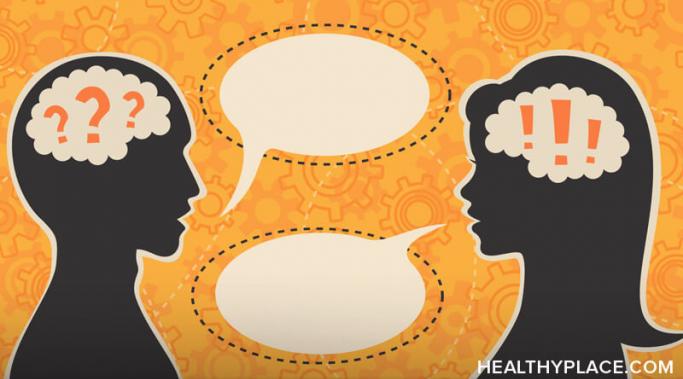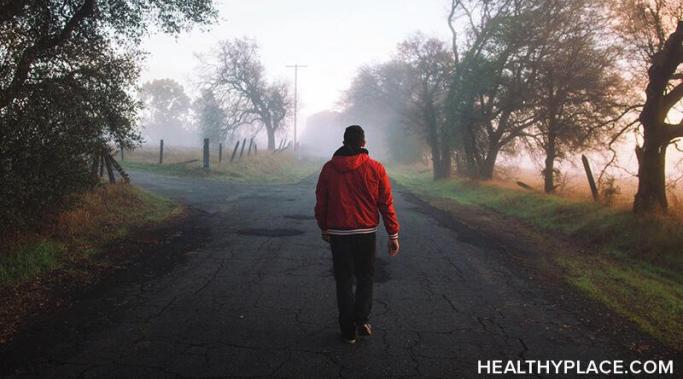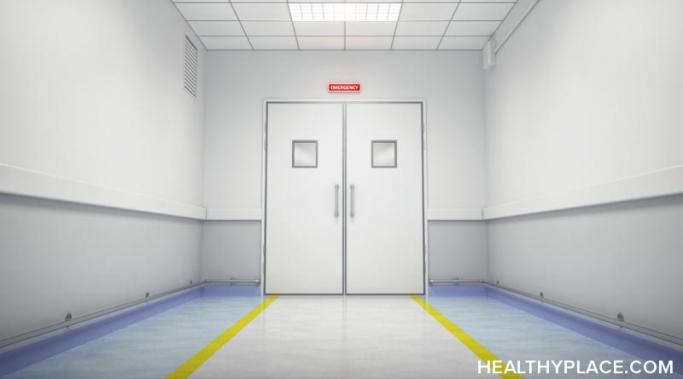Rapid weight change due to mental illness is challenging enough without dealing with people's reactions. I've experienced rapid weight loss and gain on three separate occasions. The most dramatic weight change I survived was a 30-pound loss that left me looking like a skeleton with dark circles under my eyes. The only thing more shocking was people telling me how great I looked.
Recovering from Mental Illness
Medical trauma is an underrepresented form of trauma that happens all too often to people with mental illness. For example, when I was 19, I sought treatment for what I then thought was bipolar disorder, and the reactions I got from doctors left a psychological wound that still affects me today.
I recently experienced rapid weight loss from anxiety, and it felt like a vicious cycle that would never end. My anxiety worsened with every meal I missed, and every pound I lost. It was completely overwhelming and scary, but I got through it. Read on to learn how I was able to stop the cycle of rapid weight loss and return to a healthy weight.
A few nights ago, I used a crisis text line for the first time. I had no idea what to expect; I just knew I was in too dark of a place to really manage it on my own anymore. So I reached out, and I'm really glad I did. (Note: This post has a trigger warning.)
Healing from mental illness isn't linear. Most of us have had to recover from a mental illness relapse at one point or another. Triggers show up whether we invite them in or not: medications stop working, we lose loved ones, a pandemic hits. We aren't guaranteed unending remission. There's no one-size-fits-all path back to sanity, but there are ways to make healing from a mental illness relapse a little easier.
Having undiagnosed mental health issues is really hard; I'm not going to lie. For so many years, I have craved having a distinct, definitive mental health diagnosis, but it just never seems to happen. I've had several diagnoses over the years, but none of them have ever really felt right. Sometimes I wonder if I'm the problem, if nothing will ever feel right for me.
According to the National Action Alliance for Suicide Prevention, the suicide death rate in the first week after patients leave inpatient psychiatric care is 300 times higher than the general population. This doesn't mean that hospitalization isn't effective; it means that hospitalization is not meant to be the sole treatment for mental illness. I wish mental hospitals were like car washes, and we all magically emerge sparkling sane upon reentry to the world, but my hardest days have always been the first few days after discharge.
Recovering from mental illness is a lot of work all on its own, but lately, those of us in recovery have been handling another major mental health issue: pandemic fatigue. I'm calling pandemic fatigue the sense of weariness and hopelessness that comes from social distancing and missing out on big events as the world battles COVID-19. Lately, pandemic fatigue has been making it much harder for me to focus on my mental health recovery because I've had to go without my usual coping mechanisms for months now.
For the last year or so, I have been doing a lot of work to process my childhood trauma. I've been in therapy, I've been taking psychiatric medication, I've been doing outside reading, and my therapist and I even found a way to work one of my favorite TV shows into my trauma work. In general, I think it's going really well, except for one problem: parenting. I don't know how to avoid causing my son the same trauma that happened to me.
Recently, I realized the importance of both fighting and surrendering to mental illness. I was hospitalized for a horrific bipolar mixed episode I suffered through for several months. I hadn't been this sick with mental illness since my four-year-long battle with postpartum depression and have never experienced anything like it. Now that I'm out of the hospital and slowly stabilizing, I'm becoming startlingly aware of a paradox in getting through mental illness -- healing isn't possible without both fighting and surrendering.









